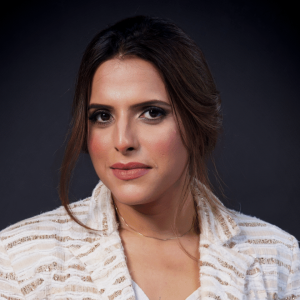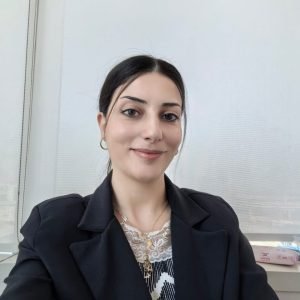Table of Contents
The United Arab Emirates (UAE) took a prominent role in the recent G20 Health Ministers Meeting and the joint G20 Joint Finance and Health Ministers Meeting held in Polokwane, South Africa, on November 6-7. The UAE’s participation underlines its commitment to multilateral cooperation in global health and finance, as well as its ambition to play a constructive role in shaping worldwide health policy.
The Emirati delegation was led by Dr. Mohammed Salim Al Olama, Under-Secretary of the Ministry of Health and Prevention (MoHAP). He emphasized that the involvement reflects “the wise leadership’s commitment to strengthening international cooperation and activating multilateral partnerships to achieve global health security.
Strategic priorities and global engagement
During the meeting, the UAE outlined several strategic priorities that govern its work in the health sector: enhancing system efficiency, advancing both preventive and curative services, promoting primary healthcare, ensuring financial protection for families, and developing the capabilities of health personnel. At the same time, the stressed its focus on digital technologies and artificial intelligence in formulating policies that drive sustainability and preparedness for future health challenges.

The UAE delegation also showcased the country’s achievements in building a resilient and innovative health system. This included integrating public-health strategies with environmental and climate considerations, a move the described as crucial for global health security.
Finance & health – a joined agenda
A key feature of the conference was the blending of finance and health policy, reflected in the joint meeting of health and finance ministers. The UAE welcomed discussions aimed at aligning fiscal and health policies to ensure the long-term sustainability of global health financing. ARN News Centre Furthermore, the highlighted the need for flexible and innovative financing mechanisms that stimulate investment in health systems while supporting economic and social stability. ARN News Centre

Significantly, the delegation called for stronger international cooperation in global health financing and emphasised the importance of public-private partnerships to drive health innovation and inclusive growth all to strengthen the resilience of health systems and communities in facing future challenges.
The UAE’s broader vision

This engagement aligns with the UAE’s broader vision of building a sustainable, resilient, and innovation-driven economy. Participation in high-level G20 health and finance talks demonstrates how the UAE is positioning itself as a global partner in developing international health and economic policies. ARN News Centre
By supporting the United Nations Sustainable Development Goals (SDGs) and actively engaging in the global health agenda, the is signalling that it intends not just to follow but to help shape international norms and solutions. ARN News Centre Given the increasing interconnectedness of health, economy and environment, the UAE’s approach emphasises cross-sector strategies, digital innovation, and multilateral partnerships.
Why this matters
The G20 Health Ministers meeting comes at a time when global health systems are under pressure from pandemics, climate change, and rising costs. Countries are increasingly realising that health is not only a social imperative but an economic one — poor health undermines productivity, places a burden on public finances and constrains growth.
The UAE’s active participation sends several signals:
- That small but ambitious states can punch above their weight in global health diplomacy.
- That health and finance must be treated in tandem if the global community is to build sustainable health systems.
- That innovation, especially digital and AI technologies, is a key lever for health systems of the future.
- That partnerships — international, public-private and cross-sector are essential for tackling transboundary health risks.
By calling for “an integrated, cross-sectoral approach to managing transboundary health risks based on scientific evidence and digital innovation,” the is aligning with emerging global practice.
Implications for the UAE and the region
For the UAE, this involvement enhances its diplomatic profile, especially in health diplomacy and developmental cooperation. It may also drive further domestic reforms: expect increased investment in primary health care, digital health platforms, workforce training, and climate-resilient health infrastructure.
For the region, the UAE’s leadership role may encourage neighbouring states and regional blocs to engage more actively with global health policy and innovation ecosystems. As countries in the Gulf and Middle East confront non-communicable disease burdens, ageing populations and climate-linked health threats, the example offers a model of how to integrate global engagement, domestic reform and innovation.
Challenges ahead

While the UAE’s ambitions are clear, there are several challenges set out by the global health agenda:
- Ensuring that financing mechanisms developed are equitable, particularly for lower-income countries.
- Translating high-level engagement into measurable health outcomes, especially at the community level.
- Maintaining interoperability and data governance in digital health systems, especially when scaling up AI and cross-sectoral approaches.
- Addressing the potential gap between innovation and accessibility — advanced health systems must still serve all segments of society.
The UAE has an opportunity to demonstrate how to navigate these challenges and model how states can move from ambition to delivery.
Looking ahead
As the G20 process continues, including follow-up fora and working groups, the UAE is likely to remain a key contributor. The health-finance nexus will continue to feature prominently, and the UAE’s emphasis on digital health, AI and sustainability positions it well.
For readers and stakeholders in the region, there are a few key take-aways: keep an eye on how the UAE translates this global engagement into domestic initiatives; observe how partnerships emerge between the UAE and international organisations; and follow how health financing and innovation evolve in the region.
By participating in the G20 Health Ministers meeting, the UAE has underscored that global health is not just a matter of medical services it is integral to economic growth, social stability and environmental resilience. The real test now is turning these high-level commitments into results on the ground.
Do follow UAE Stories on Instagram
Read More:- UAE Renewable Energy: Leading the World in Sustainability















